A bit more politics than policy this week…a bit of a trend this year.
SoS Education declares focus on FE and Technical Ed
Wonkhe report on the Conservative Party conference and visualise the following amongst the HE the HE tea leaves:
- And what then for universities? Unlike Tory conferences of past years, the spotlight was pointing elsewhere. Universities and science minister Chris Skidmore was in reassurance mode. He’s not prejudging the Augar response but he’s making it clear to everyone that will listen that a simple cut in fees is unlikely at this point. His boss Gavin Williamson has been mostly focusing on technical education.
- Rachel Wolf was the woman of the moment as news broke in Manchester that she is largely responsible for writing the party’s manifesto for the coming election. Knowledgeable about the sector and well connected, her agency Public First did the guts of the work on the recent Civic University Commission and she previously advised Boris when he was a shadow HE minister…We’re also told that the document will be kept short and sweet to avoid the pitfalls of Theresa May’s 2017 manifesto that quickly unravelled.
Education Secretary of State, Gavin Williamson, spoke at the Conservative Party Conference. The entire speech backs FE and technical education with little mention of HE. The main elements of the speech as the minister delivered it follow. Further below is a shorter summary and link to the official Government press release covering the speech.
Williamson:
- But even today … even after all this progress … there is one part of our education system that’s often overlooked…… Further Education. While past Labour Governments obsessed over targets to get half the population to university…. They forgot about the other 50% … They ignored the other 50%. Conference… we’re going to put that right. Ever since secondary education was made free and available to all … … by a Conservative, RAB Butler, … … governments of all colours have talked about technical and vocational education … but deeds, in truth, have rarely matched the words. That’s why … I promise to give my all … … to make technical and vocational education … … the first choice for anybody … with the aptitude, desire and interest to pursue it. Apprenticeships, technical and vocational education are just as valuable as University education… and they are just as important to our economy… So, today, I am setting a new ambition… … to super-charge further education over the next decade with an aim to overtake Germany in the opportunities we offer to those studying technical routes by 2029.
- But I don’t want to focus only on apprenticeships and T-Levels … … because we need better technical and vocational education … over and above that too…… And that is why we’re opening new Institutes of Technology…… they’re providing university-level technical qualifications … and the sector-specific skills … that are most-needed in their local economies. They have the potential … to transform high-level technical education …Bringing together FE colleges, universities and employers… … but we don’t have enough of them to serve the whole country… So today, I can tell you … … we will make available … an extra £120 million … … so we can have an Institute of Technology … in every part of the country……Opening a total of 20, so that there is one in each major city. We will make sure every young person… in every part of our country… gets the chance to gain the high level technical skills that they, and we, need. From the elementary to the elite… We need stretching technical education at every level …
- Conference, I’ve been in the Department for Education for just ten short weeks … but my mission as your Education Secretary is clear…to accept no excuses … and keep the focus on raising standards in all our schools …but also to deliver nothing less than a revolution in technical education . Doing so is vital for our country … for our economy … and most importantly for our children…
The Government’s press release summarises Williamson’s speech as:.
- The government will provide up to £120 million of additional funding to enable every region in England to establish a high-quality Institute of Technology.
- A new Skills and Productivity Board will also be established to provide the government with expert advice on how to ensure the courses and qualifications on offer to students are high-quality, are aligned to the skills that employers need for the future and will help increase productivity.
- Opening a network of 11 Maths Free Schools across every region of the country – and confirmed that a new Maths Free School will open in the North East through a partnership between Durham University and Durham Sixth Form College.
What next for government?
Political Intelligence set out 5 scenarios through which the PM wouldn’t have to ask the EU for a further extension for Brexit. On Wednesday Boris’ letter to Jean Claude-Juncker proposing a new Ireland/Northern Ireland protocol was published. The BBC reported on Friday afternoon that government papers in a Scottish case said that the PM would send the extension letter to the EU if there is no deal.
It’s all a wait and see game now – whether there is a deal or not with the EU, whether it can get through Parliament, whether the PM will apply for an extension if there is no agreed deal in time, and whether the EU will grant one if he asks. And even if we don’t leave the EU without a deal in October, it seems likely that we will in January (unless a deal is agreed before then), because a Tory majority in a November election seems like a real possibility – and that would mean that there will be enough MPs to approve a no deal exit. And…even more importantly…whether we leave in October or January, with a deal or without, it is not over. A deal means a transition period while a longer term arrangement is sorted out – and in a no deal scenario the government will still want a trade deal with the EU. And who thinks that will be easier than the current negotiations, especially as the backstop or whatever arrangements replace it will be on the table from the EU’s point of view.
The EU will do what they do – in the UK, it is all about numbers. Are there the numbers for the PM to get his deal (and the necessary legislation) through? Are there the numbers to vote for an election? Will the Queen’s Speech be approved by Parliament and what happens if it isn’t? What will Labour and the Lib Dems and the 21 new independent MPs do when it comes to the crunch? The risk of the PM following through on his no deal rhetoric is now looking smaller so the question for the anti-no deal MPs is whether it is better to vote for the Johnson deal or wait and see what happens in an election. And some Labour MPs are calling for a referendum before an election – but it is hard to see how that will come about except via a vote of no confidence leading to a Corbyn government without an election – and that doesn’t look very likely either unless the Lib Dems and the Tory rebels back Corbyn – which at least this week they aren’t doing…..
The future of HE
Nick Hillman of the Higher Education Policy Institute (HEPI) has blogged about David Cameron following the release of his new book. Hillman uses the text to consider the complications behind Cameron’s decision to introduce higher fees and how the link between this and the removal of student number controls isn’t as obvious as might be assumed.
Chris Skidmore, Universities Minister, answered a parliamentary question on ensuring universities adopt system-wide planning processes in addition to number controls:
- Formal student number controls were phased out in 2012/13 with the exception of capped medical places to enable as many students as possible to access and succeed in higher education (HE). This has enabled record rates of 18-year olds to benefit from a university education than ever before, including from disadvantaged backgrounds. 50% of students are now choosing to study in HE and in 2018, those from disadvantaged backgrounds were 52% more likely to enter full-time HE than in 2009.
- One of the aims of the new independent regulator for HE, the Office for Students, which became operational on 1 August 2019, is to hold providers to account for delivering well-designed courses that offer successful outcomes for all of their students
We reported the Labour conference discussions about fees last week – Nick Hillman has a blog about the impact of their promise here.
Bill Rammell, Chair of MillionPlus and Vice Chancellor of the University of Bedfordshire delivered a speech to a Conservative Fringe event entitled, The Age of Upheaval: what should post-18 education look like in 2030? The full speech can be viewed here. He said:
- “We must grow the resources for our part-time and mature learners … Around 20 million of the UK’s working population do not have level 4 qualifications or above … this means mature learners represent a huge pool of untapped potential across the UK. In order to meet the challenges of tomorrow – be those relating to fairness, social justice, skills development, or productivity – it is crucial for the UK that everyone can access educational opportunities.”
- “Our universities are huge draws internationally. It is enormously encouraging that the government is pushing an International Education Strategy, targeting more international students, and the recent announcements on post-study work are a genuine boost”.
- “However, this cannot be job done. We need further reform of practices at the Home Office and the Visa Agency to achieve the lofty ambitions we have set ourselves. We need to cut out duplication and bureaucracy, as well as unfair subjectivity in decision making that currently acts as a barrier to expanding our essential education exports. I know the Minister is keen to do more on this, and we are always ready to help.”
Research news
Greg Clark (ex- Secretary of State for BEIS, currently without the Conservative Whip due to voting against the Government) pushed for Boris’ Government to uphold the commitment to increase research funding during oral questions this week – and got a positive response from the Chancellor Sajid Javid:
Q – Greg Clark: As we leave the EU, we need to reinforce our international reputation as a powerhouse of scientific excellence. In 2017 we spent 1.7% of national income on research and development, while Germany spent 3% and Israel 4.3%. So will the Chancellor use his next Budget to make substantial progress towards our 2.4% target and recommit to the medium-term target of 3% of national income going into research and development?
A – Sajid Javid: First, may I thank my right hon. Friend for his excellent work as Business Secretary, including in this hugely important area of research and development? He set some ambitious targets. We intend to stick to those targets, if not go even further, which I am sure he would welcome. Obviously I will not set out the Budget now, but I absolutely share his ambition, and I think he will be pleased with what we eventually do.
Immigration
Home Secretary Priti Patel stated at the Conservative Conference she intends to launch an Australian-style points-based immigration system and once again stated her commitment to “ending free movement once and for all”. She continued that the new system would welcome “brilliant scientists, the finest academics and leading people in their fields” coming to Britain. Patel also intends to lift police restrictions on ‘stop and search’, significantly increase the number of officers carrying tasers, and tackle gangs, particularly county lines children, with £20 million to tackle drugs running.
Parliamentary question on international student visas:
Q – Helen Goodman: To ask the Secretary of State for the Home Department, what estimate he has made of the effect on international student numbers by country of the decision to extend UK work visas for foreign graduates to two years after completion of their studies.
A – Seema Kennedy:
- The launch of the Graduate immigration route demonstrates our support for the UK’s world-leading education sector and ensures that it remains competitive internationally. No estimate has been made of the number of students by country who will take advantage of it.
- The International Education Strategy sets out our ambition to increase the number of international higher education students to 600,000 by 2030 and this change will contribute to that goal.
Technical Education
Monday saw an interesting discussion in the Lords chamber on T levels. The current hotspots were both raised – whether Russell Group universities will accept them as entry qualifications and how the grade thresholds were disproportionately disadvantage students with SEN, particularly dyslexia, and may bar them from accessing T levels.
Media Engagement
Sarah has written a blog on BU’s Research site highlighting a new article on the Wonkhe site which considers why academics (do or don’t) engage with the media to communicate their research. Here are some excerpts from the Wonkhe blog which highlight why academic colleagues believe working with the media is now essential:
- … academic media advocates simply now regard working with journalists as part of the job. Not only that, but they also stress that it is now (more than ever) a duty and an obligation – especially in an era of growing media input from the subjective and the “ill-informed” (most commonly defined as: shoot-from-the-hip politicians or rent-a-quote personalities drawn from reality TV shows).
- While their journey as a go-to media expert has been challenging, and certainly there are some hard lessons to learn on the way, they say that we have now come to a point where academics just have to be bolder, must stand-up and project their knowledge, their evidence, their experience, and they must simply just seize the initiative. Without taking this stand then academics will be crowded out as the voices of reason
- “So often politicians and policy-makers present things as facts, but there’s no evidence base for this, so I feel obliged to point out that there is a big body of work and evidence that isn’t being drawn upon, just being the critical voice to say “have you thought about the implications of what you are saying?”. The value of it is that it allows the public to have a more rounded view of the situation, so they can make their own minds up, based on evidence.”
Widening Participation and Success
Wonkhe report that: the Scottish government has published a carers strategic policy statement, with the aim of connecting a range of disparate policies to support carers, including with progression into higher education. The policy statement is open for consultation, with particular concern about the extent to which the statement will help to inform carers about the opportunities available to them.
Other news
Graduate recruitment. Wonkhe report on an Institute of Student Employers report. – 2019 Inside Student Recruitment (members only access) which finds that: “the percentage of its members setting no minimum entry requirements for graduate recruits has risen from 7 per cent in 2014 to 22 per cent, whilst the proportion of employers requiring a 2:1 has dropped from 76 per cent to 57 per cent. The requirement for minimum A level grades or UCAS points has also declined to 16 per cent. The report also shows that the majority of companies (almost nine out of ten) do not look for a qualification in a particular subject, and just 2 per cent use postgraduate degrees as a minimum requirement. Firms are also giving a higher priority to diversity issues – 38 per cent are changing the universities they visit, and 36 per cent are undertaking blind recruitment.”
Prevent: Wonkhe report that the Home Office has published a “ways of working” note to inform Lord Alex Carlisle’s review of Prevent. Wonkhe explain that the note elaborates on how the review will address the terms of reference, and what evidence it will seek to gather. The review will consider the “concept and implications” of the Prevent duty, how well it is being implemented at the local level, and the validity of criticisms and complaints about Prevent.
Patent filings by women: Female innovators have doubled in the last 20 years – but there’s still a long way to go, says the IPO. The Intellectual Property Office (IPO) has published the Gender profiles in worldwide patenting report. Across the world female innovators have doubled in the last twenty years, however, women still only made up 12.7% of patent inventors in 2017 (compared to 6.8% in 1998). The report finds that:
- more than one in five patent inventions have a named female inventor
- the biggest increase of female inventors compared to males is in academia. Patents linked to female inventors in universities rose from 15% to 20% between 1998 and 2017. Women inventors in industry rose from 6% to 10% over that period
- industries with the highest numbers of female inventors are biotechnology, pharmaceuticals and organic fine chemistry. In these areas, approximately half of the patent applications filed between 1998 and 2017 named at least one female inventor
- the proportion of female inventors resident in the UK has risen from 8% in 1998 to 11% in 2017
Student Loan Mythbusting: Martin Lewis continues his campaign to help the nation understand student finance. Moneysavingexpert.com have released a new video – Student Loans Decoded. The video is an hour long but breaks up into separately accessible chapters. It is aimed at students in years 11-13 and sets out to explain student finance and bust the myths and misunderstandings so students make an informed choice.
Subscribe!
To subscribe to the weekly policy update simply email policy@bournemouth.ac.uk
We’d also like to thank you for valuing and sharing the policy update with your colleagues. Over the last year we’ve seen our readership grow and grow!
JANE FORSTER | SARAH CARTER
Policy Advisor Policy & Public Affairs Officer
Follow: @PolicyBU on Twitter | policy@bournemouth.ac.uk

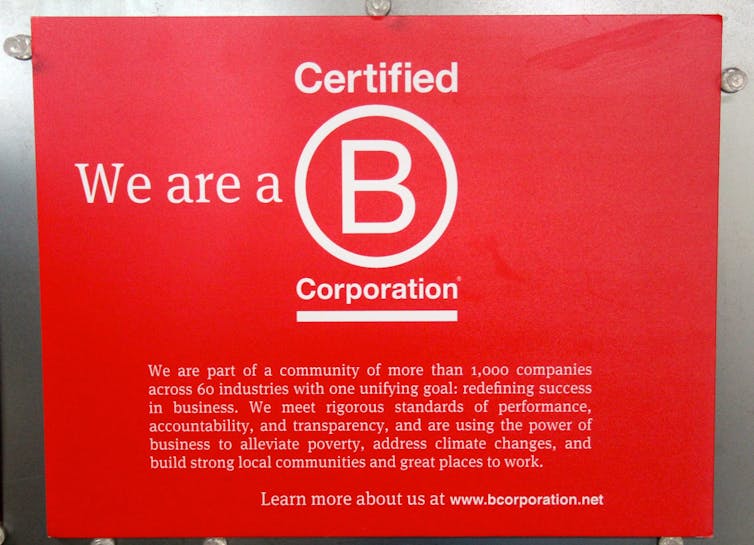




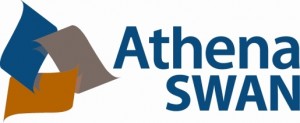
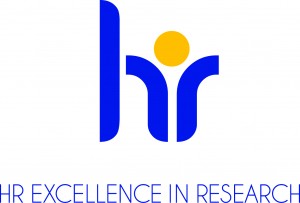
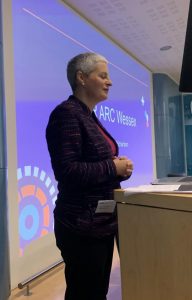 Tuesday saw the launch of the Applied Research Collaboration (ARC) for Wessex. This exciting development brings together health and care organisations (including NHS Trusts, universities, Clinical Research Network, Academic Health Science Network, voluntary organisations) to respond to the needs of the people living in Wessex.
Tuesday saw the launch of the Applied Research Collaboration (ARC) for Wessex. This exciting development brings together health and care organisations (including NHS Trusts, universities, Clinical Research Network, Academic Health Science Network, voluntary organisations) to respond to the needs of the people living in Wessex.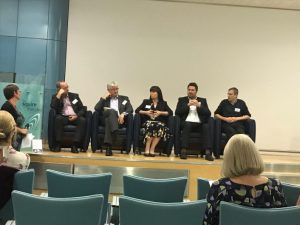
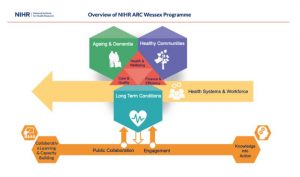 Aging and Dementia – Theme Lead Prof. Helen Roberts
Aging and Dementia – Theme Lead Prof. Helen Roberts

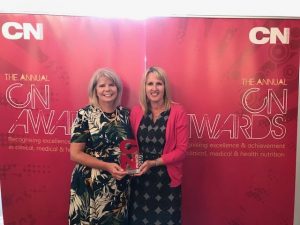
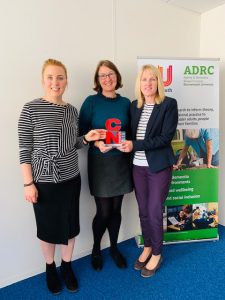
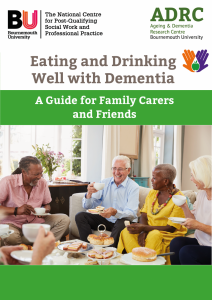


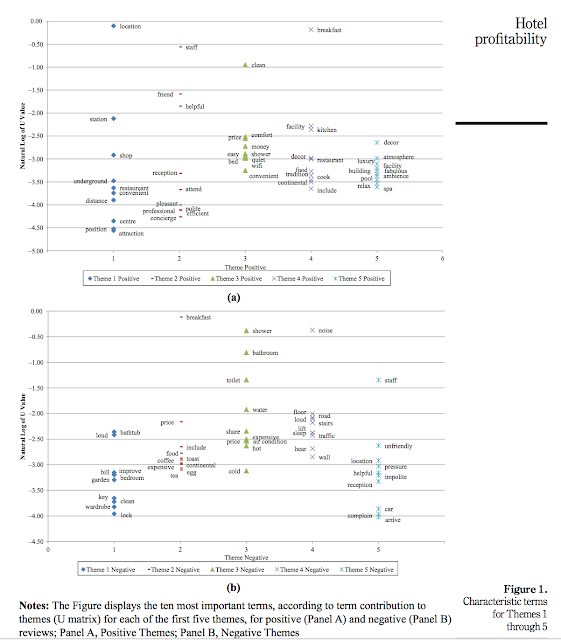












 Dr. Ashraf cited on ‘Modest Fashion’ in The Guardian
Dr. Ashraf cited on ‘Modest Fashion’ in The Guardian NIHR-funded research launches website
NIHR-funded research launches website Academics write for newspaper in Nepal
Academics write for newspaper in Nepal New paper published on disability in women & girls
New paper published on disability in women & girls Global Consortium for Public Health Research 2025
Global Consortium for Public Health Research 2025 MSCA Postdoctoral Fellowships 2025 Call
MSCA Postdoctoral Fellowships 2025 Call ERC Advanced Grant 2025 Webinar
ERC Advanced Grant 2025 Webinar Horizon Europe Work Programme 2025 Published
Horizon Europe Work Programme 2025 Published Horizon Europe 2025 Work Programme pre-Published
Horizon Europe 2025 Work Programme pre-Published Update on UKRO services
Update on UKRO services European research project exploring use of ‘virtual twins’ to better manage metabolic associated fatty liver disease
European research project exploring use of ‘virtual twins’ to better manage metabolic associated fatty liver disease